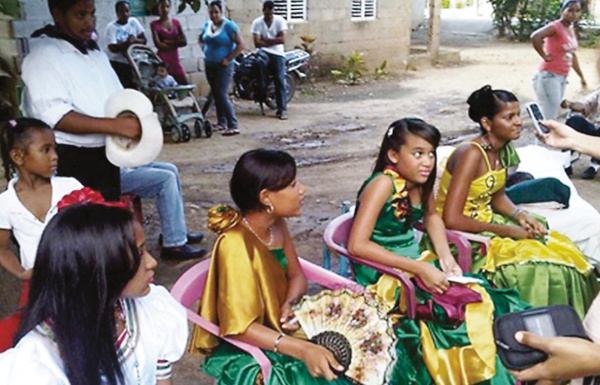Human sustainable development in Boca de Mao
The Pan American Health Organization's Faces, Voices and Places (FVP) initiative was carried out in the Boca de Mao region of the Dominican Republic. This regional initiative helps middle-income countries reduce inequality in their poorest areas and strengthens citizenship through shared responsibilities and a rights-based approach. It also promotes intersectoral and interagency action with a view to reaching the Millennium Development Goals (MDGs). Besides implementing activities at the community level, FVP has developed a training plan on health, the environment, food security, and health and nutrition surveillance. This initiative was developed based on the needs identified by the community, primarily in the areas of sanitation, hygiene, living conditions, and food production.
Meets the criteria established under Health in All Policies:
- Political commitment. While it may not enjoy political commitment at the highest levels of the local government, the Local Council for Sustainable Human Development (LCSHD) coordinates the program and the community is actively involved.
- Separate structure. The program does not have a separate structure. The LCSHD coordinates the program. The Ministry of Health has set up a Community Health Committee to implement health promotion and disease prevention activities. Committee members are part of the LCSHD.
- Participation of other sectors. In addition to the health sector, the LCSHD includes representatives from the community and neighborhood associations, the municipal authorities, the agricultural and education sectors, PAHO/WHO, and the Institute of Nutrition of Central America and Panama (INCAP).
- Separate budget. The program has its own budget, which is funded by the institutions belonging to the LCSHD and by allocations from the City Council. The Local Council also raises its own resources.
- Focus on reducing inequity. The program serves rural agricultural workers, including a large population of Haitian immigrants. The region is considered dengue- and malaria-endemic. Among other activities, the program acts on the social gradient in health by: (1) distributing free medicine; (2) setting up community laboratories for water testing; (3) distributing home- made water filters; (4) conducting nutritional monitoring; (5) monitoring HIV-positive individuals; (6) providing chlorine production equipment; and (7) implementing the zero garbage program.
- Intersectoral action. The Ministries of Agriculture, Health and Education work together to mount an integrated response to the needs of this border population. Intersectoral action occurs at the level of the LCSHD, which operates across social and political sectors in Valverde province, channels the needs expressed by the population, and brings together governmental and nongovernmental agencies to address those needs.
- Public policy. The Council sponsors Well-Being Week, which is now included in the annual municipal budget. This event includes a local clean-up day to raise awareness on the importance of environmental hygiene. The municipality also distributed collectors waste containers for plastic and cans throughout the district.
- Evidence of results. There is scientific evidence of the program's results and an evaluation has been scheduled for 2013. Preliminary data show that cholera has been contained, maternal deaths have been eliminated, dengue-related deaths have been reduced, and the quality of life of people living with HIV has improved. The LCSHD, partnering with Ministry of Agriculture and PAHO/WHO, planned and implemented a local community garden program. INCAP's efforts have enhanced its credibility and boosted the community's confidence in its ability to take joint action against potential threats to food security caused by rising food prices.
- Social participation. The LCSHD includes representatives from local and grassroots organizations including the neighborhood association. The public participates in open council meetings, advocacy efforts, health fairs, Well-being Week, and food fairs. The program is developing two information systems for water quality monitoring and nutritional surveillance in vulnerable groups.
